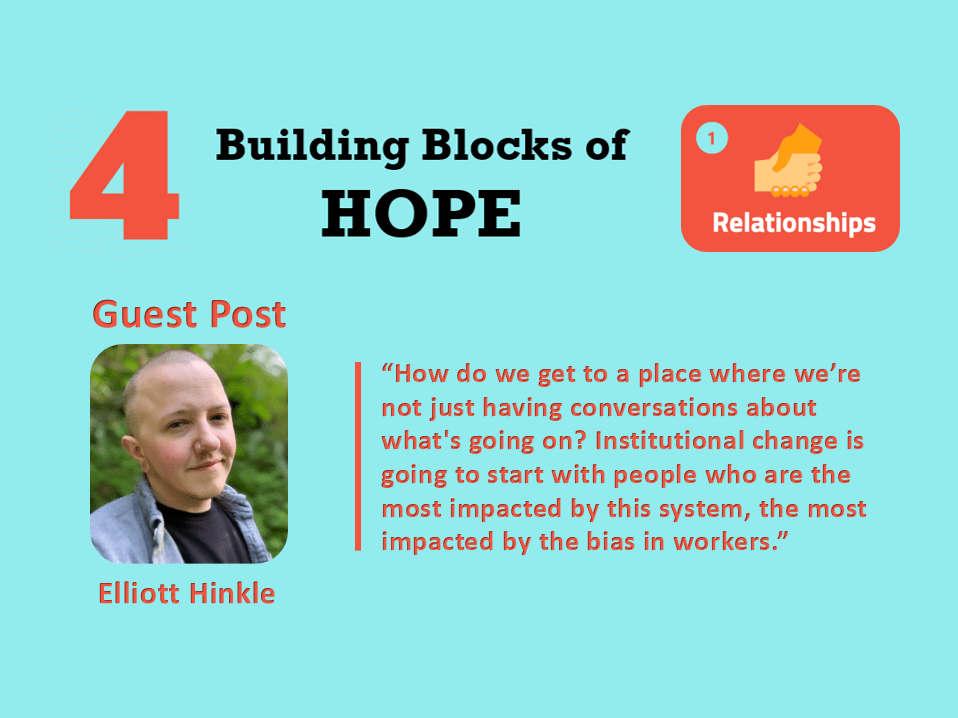Elliott Orrin Hinkle (they/them), who is a former foster youth of the Wyoming Foster Care system and currently a consultant to the National Capacity Building Center for States at ICF International and at JBS International working on NYTD , was interviewed by Healthy Outcomes from Positive Experiences (HOPE). They also they have been a trainer of Youth Thrive since 2014 and recently were certified to train on Youth Thrive for Youth.
HOPE collaborates with our Strengthening Families and Early Relational Health work, all sharing a goal of lifting up strengths of families and individuals, breaking down bias, and shifting how providers interact with the children and families they serve.
“What improvements do you think could better the system?
I was having a really interesting conversation yesterday about race and foster care. There was a blind study where researchers took out all the demographic data, and the amount of removals [from Black families] was the same as White folks. How do we get to a place where we’re not just having conversations about what’s going on? A lot of foster care workers are White people who aren’t having those conversations, who have a degree behind them, so they may feel they know what’s best. I think of how many committees exist around diversity, equity, and inclusion, but not an accountability structure for when someone does something harmful. If a family or youth wants to speak up, that doesn’t really exist. What do we actually do about that? When the same people who are going to hold a White person accountable are more White people, nothing’s going to happen there.
Institutional change is going to start with people who are the most impacted by this system, the most impacted by the bias in workers. A positive thing that can happen is shifting the system, so the people who are at the top have had the most direct experience – their community is much more represented. I think it could look like involving youth in meaningful conversations, in authentic ways, not just a seat, because younger generations continue to show that they actually have really great ideas.
Also, when I think of child welfare, child welfare’s intentions were to help families, to reunite families, to navigate child abuse, but ideally, if child welfare was doing what I thought it should be doing, we would be working ourselves out of a job. We wouldn’t continue serving families in the sense of, “We know this is going to continue to be an issue,” we’d be working towards, “How do I keep the youth in the family? How do I make sure that I’m collaborating with a culturally specific, responsive service provider? What does the community think the solution is?” Versus, “I have the ideas, this is what we’re going to do.””
